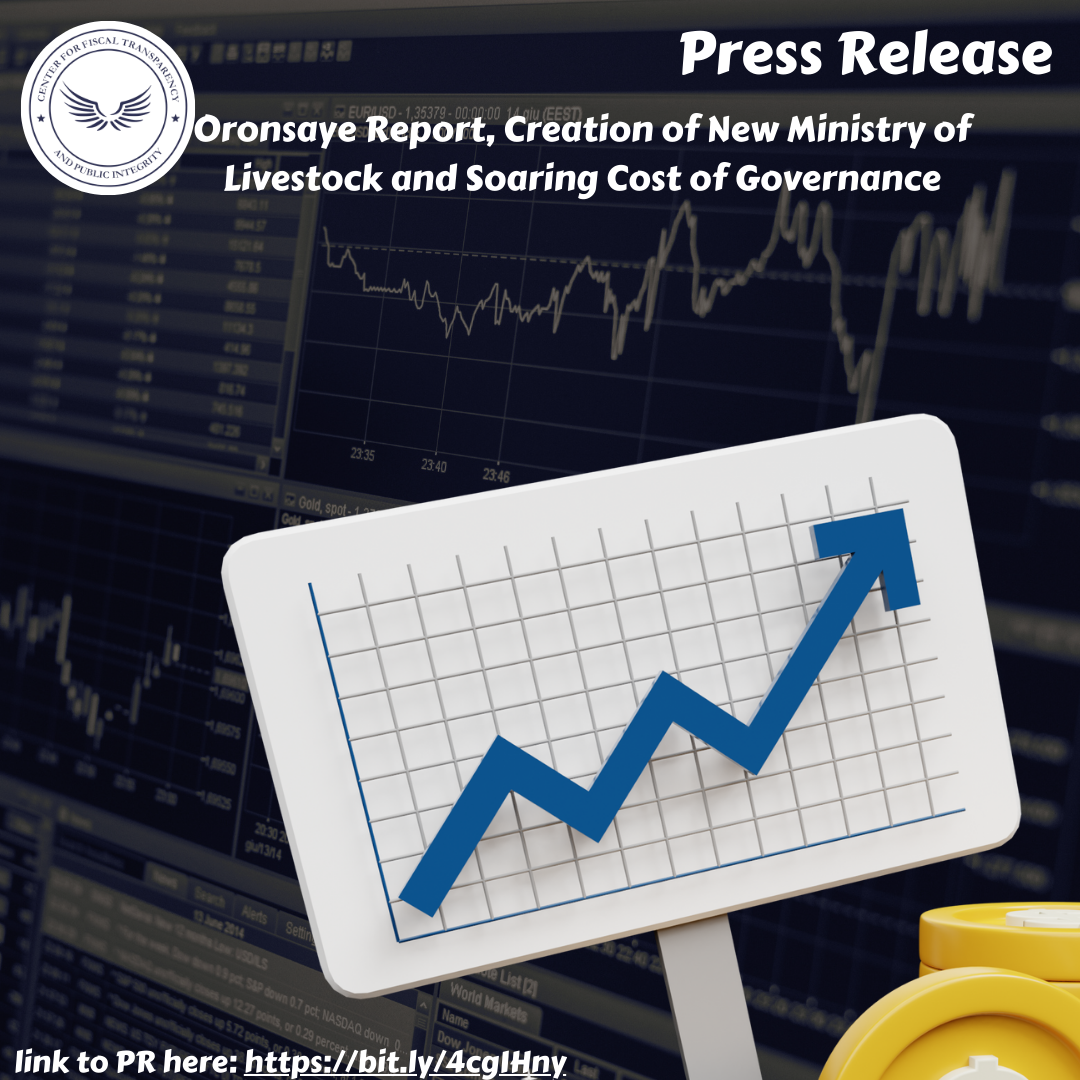On February 26, 2024, President Bola Ahmed Tinubu, GCFR directed the implementation of the Stehpen Oronsaye report after 12 years. This call, which has been made by every successive government, including the immediate past administration, was received with a pinch of salt in some quarters given the President’s bloated cabinet size that points to the contrary.
The Center for Fiscal Transparency at the time issued a statement calling on the government to show commitment by first, updating the report given that there have been fundamental structural changes since the report was produced. The Center also called on the government to issue clear implementation timeline to empower the media and civil society organizations (CSOs) to independently monitor progress and ensure adherence to the report’s guidelines.
Despite our call, the administration has not only failed to show commitment to implementing the report as promised, but has taken steps that are at variance with the recommendations of the report, the latest being the recent announcement of the creation of the “Federal Ministry of Livestock Development” during an event that also saw the inauguration of the Presidential Committee on Livestock Reforms. For the record, with this additional ministry, there would be 36 ministries overall and 49 ministers, a record for the most cabinet appointments made by a president.
Without prejudice to the need to address the agelong herder-farmer crisis, the Center believes that announcing the creation of a new ministry at this time is a pointer to the government’s insensitivity to the nation’s fiscal condition and the worsening economic situation. Given the nation’s fiscal reality and to forestall additional recurrent costs in governance, we hold that an agency under the Federal Ministry of Agriculture and Food Security will suffice should an institution be required to mitigate the crisis between farmers and herders.
Rather than further creating redundancy, waste and inefficiency which is at variance with the path offered by Oronsaye report that seeks to reduce the cost of governance and promote fiscal discipline, we urge the administration to strengthen existing agencies to mitigate the ongoing food security crisis. For instance, as part of its mandate, the Federal Ministry of Agriculture and Rural Development (FMARD) is primarily saddled with the responsibility of ensuring food security in crop, livestock and fisheries, while also stimulating agricultural employment and services, encourage the production and supply of raw materials to allied agro-industrial sectors promote the production and supply of raw materials to Agro- allied industries, provide markets for the products of the industrial sector, generate foreign exchange and aid rural Socio-economic development throughout Nigeria.”
Despite these all-encompassing mandates, the Ministry has failed to live up to expectations. Clearly therefore, the Center believes that the lingering farmer-herder crisis cannot be solved by merely creating a new ministry that will largely duplicate the works of an existing one, but lies in empowering existing systems to function effectively on the one hand, and the right political will to address the underlying causes of this conflict through dialogue and justice for victims.
Again, the Center reiterates its call on the President to prioritize the implementation of the Oronsaye report without further delay. The Nigerian people deserve a government that is committed to transparency, accountability, and the prudent management of public resources, which are fundamental ingredients of democratic governance, hence, actions that will further impoverish the masses in the face of a soaring cost of governance will be inconsiderate, and therefore, unacceptable.
Signed:
Victor Agi
Public Relations Lead

